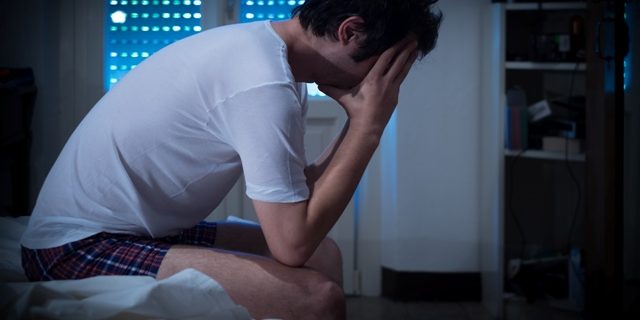Our recent in-service, presented by our Northwestern Addiction Psychiatry fellow, Bruce Bassi M.D., looks at the formidable challenges of sleep in addicted patients. Sleep difficulties plague our species, and especially those of us in recovery from the disease of addiction. The challenges increase as we have limited pharmacological approaches and so many have co-morbid psychiatric or medical conditions; each with their own set of sleep associated difficulties. The critical importance of a healthy sleep pattern can’t be overstated.
In addition to this excellent presentation, I also recommend reading, “Why We Sleep” by Mathew Walker, P.H.D. It is one of the most readable, comprehensive and up to date discussions on this important topic.
In this presentation, Dr. Bassi reviews one of the biggest risk factors of relapse during recovery: insomnia. He reviewed major relevant components of normal sleep, then details in what ways substances can disrupt sleep, and what evidence that exists (or doesn’t exist) for the treatment of sleep, more specifically in the context of substance use disorders.
Insomnia has been linked to increased risk of: obesity, stroke, high blood pressure, insulin resistance, immunologic disruption, and certain types of cancers. Within a substance use population, sleep disturbance is strongly correlated with risk of relapse, even after adjusting for other major risk factors. Individuals with insomnia are more likely to use alcohol, and those who use alcohol are more likely to experience insomnia, creating a vicious cycle. Alcohol has the potential to blunt normal fluctuations in body temperature and melatonin release, disrupt breathing patterns, and reduce slow wave sleep. Furthermore, three studies have found that alcohol can affect sleep quality during the intoxication and withdrawal stages and its effects on sleep can persist for weeks to months.
In regard to opiates (including buprenorphine to some extent) and their effect on sleep, there is suppression of the respiratory pacemaker at the pre-Botzinger nucleus, decreased chemosensitivity to hypoxia, decreased genioglossus activity and upper airway dilator muscle activity, all of which contribute to irregular tidal volumes (or Biot’s respirations). According to one study, approximately 75% of individuals on opiates were found to have disordered breathing to some extent. Opiates are in fact the second most leading cause of central sleep apnea (CSA), following congestive heart failure. Practitioners need to use caution when treating CSA with a CPAP, which can lead to “complex sleep apnea” which requires treatment with adaptive servo-ventilation.
Some medication options have mixed evidence in treating sleep disturbances in the substance use population. However, much data supports the use of cognitive behavioral therapy for insomnia (CBT-i), which is a first-line treatment option recommended by an NIH consensus statement and the American Academy of Sleep Medicine. In two randomized control trials for alcohol use disorder populations, CBT-i was found to be just as effective as medications but more durable than medications. Most importantly, the effects began after 5 sessions of CBT-i, highlighting a common challenge, which is the need for adherence to the scheduled treatment plan in one’s recovery.
Find the full presentation here:
http://go.pardot.com/l/37512/2019-07-10/5n93db/37512/222731/Insights.pptx


